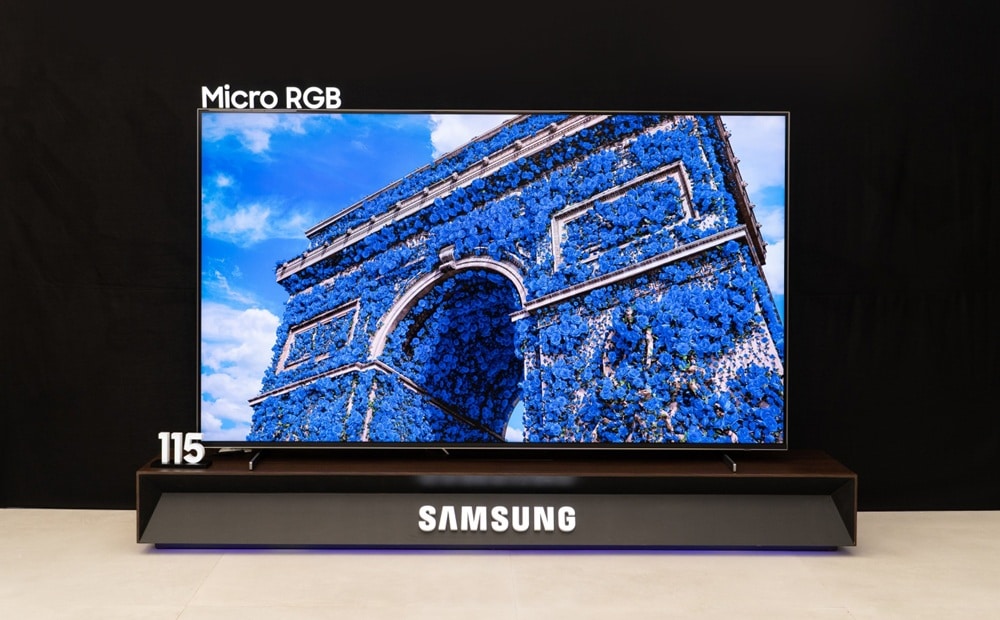In a decision considered historic, the United States International Trade Commission (ITC) has imposed a nearly 15-year import ban on China’s BOE Technology Group for misappropriating trade secrets from Samsung Display in the development of OLED technology. The ruling, expected to be definitively confirmed in November, marks a significant blow to the Chinese giant and could reshape the global high-end display market.
The penalty means BOE cannot sell or distribute its OLED panels in the U.S. for almost a decade and a half, affecting strategically important devices like iPhones and Meta’s smart glasses, which utilize cutting-edge screens.
The case: from Korean R&D to U.S. litigation
Samsung Display claimed in October 2023 that BOE had stolen confidential information accumulated over decades of research and development. The Korean company asserts it has invested billions of dollars since 1997 to reach milestones such as OLED panels with 20,000 nits of brightness, while BOE, founded in 1993 and entering the OLED sector 16 years later, achieved mass production in a few years without evidence of proprietary development.
According to the ITC, BOE hired former Samsung Display employees and contacted key suppliers to gain access to proprietary technical information. The U.S. tribunal concluded that the Chinese company used “improper means” to acquire and apply trade secrets, causing “substantial harm and a serious threat” to Samsung Display.
An unprecedented sanctions measure
The “limited exclusion order” (LEO) imposed on BOE is calculated based on the development times of the involved technologies, which explains the unusually long duration of the ban: 14 years and 8 months.
The ruling also blocks all commercial activity by BOE in the U.S., including marketing, advertising, sales, and distribution of inventory already in the country. A 100% deposit upon import is required as a condition for temporary shipments during review, complicating and increasing costs for any market access attempts.
Impact on the OLED market and Apple
In Q2 2025, BOE controlled 22.7% of the small OLED panel market for iPhones, surpassing LG Display’s 21.3%. Samsung Display remained Apple’s main supplier, but Chinese competitors were gaining ground thanks to lower prices.
If confirmed in November, BOE’s absence will benefit South Korean manufacturers, allowing them to strengthen their position in the premium segment and regain market share. Industry analysts note that this decision will also influence future negotiations between Apple and potential suppliers for high-end displays.
Another episode in the U.S.–China tech war
The ITC sanctions are viewed not only as a business dispute but as part of the broader geostrategic battle for technological dominance. The measure sends a clear message to Beijing: Washington will not tolerate practices deemed as intellectual property theft to gain leverage in key sectors.
Historically, the U.S. has taken similar actions in telecommunications (Huawei, ZTE) and semiconductors, but this sanction against BOE, with its duration and scope, sets a notable precedent.
Repercussions beyond OLED
Experts suggest this case could lead to stricter U.S. investigations into other foreign companies suspected of similar practices, especially in sensitive fields like chips, batteries, and artificial intelligence technology. The ruling also bolsters the narrative of “economic security” that Washington promotes to protect critical industries from what it considers unfair foreign competition.
Frequently Asked Questions (FAQs)
1. Why is the sanctions period against BOE so long?
Because the ITC summed the development timelines of each affected OLED technology, reflecting the difficulty and expense involved in creating these innovations from scratch.
2. What will be the impact on Apple?
Apple might lose an important, cost-effective OLED supplier, potentially affecting its pricing strategy and supply chain, and benefiting Samsung Display and LG Display.
3. Is this an isolated measure or part of a pattern?
It is part of a series of U.S. actions aimed at curbing what it considers illegal practices by Chinese companies in strategic sectors—integral to the ongoing technological rivalry with China.
4. Can BOE appeal the decision?
Yes, but the preliminary confirmation and the extraordinary nature of the ruling limit the chances of reversal.
Source: Chosun

